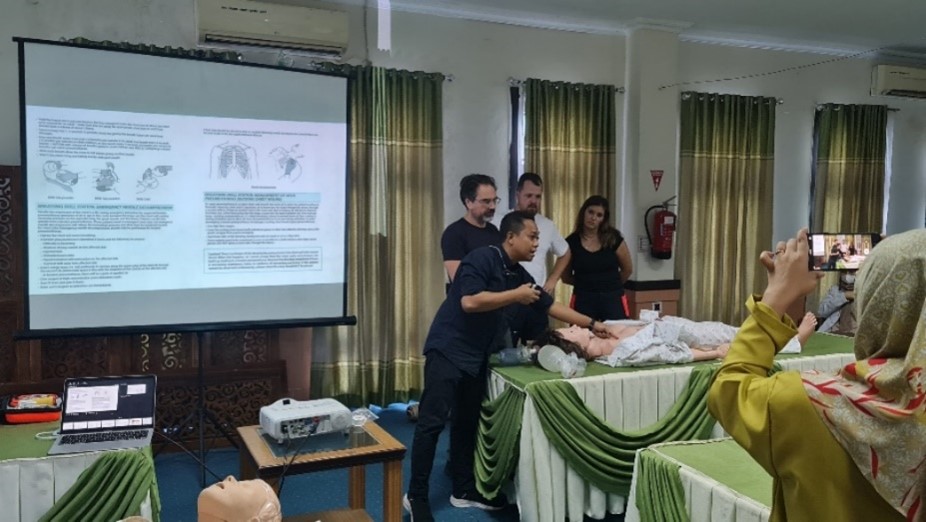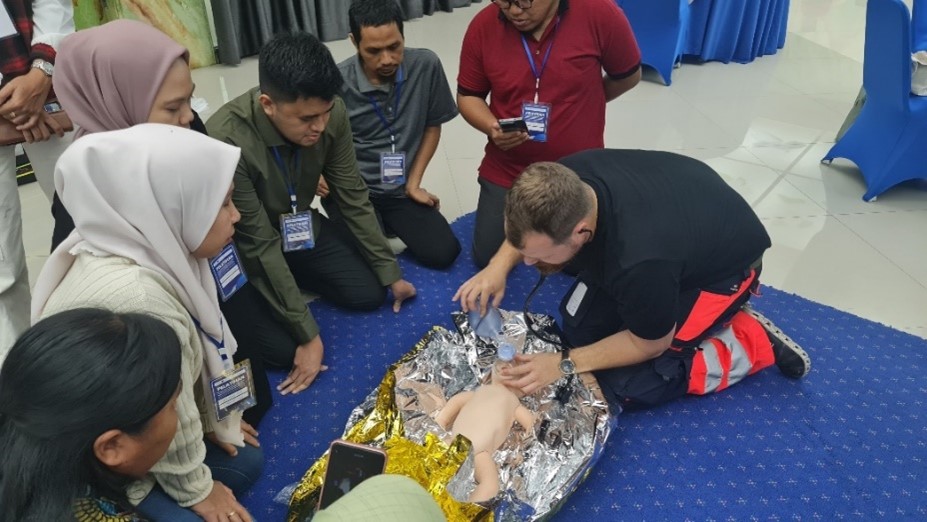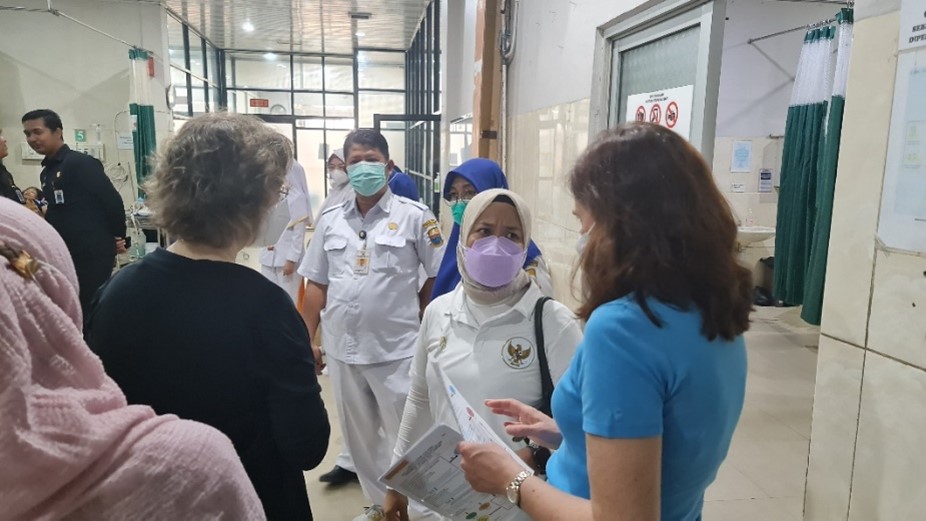Health emergencies, such as pandemics, natural disasters, but also accidents, complications during pregnancies and acute injuries, can have a devastating impact on communities, especially those that are already vulnerable. Amidst the lessons learned from the challenges posed by the COVID-19 pandemic, the importance of robust emergency services has come to the forefront. Primary healthcare centres play a crucial role as the first line of defence against emergencies in the community, making it important to ensure local health workers are fully equipped and trained to provide effective emergency services to the community and save lives.
In principle, every healthcare facility, particularly at primary care level (including community health centers, clinics and independent pre-clinics), should be equipped to handle emergencies within the healthcare facility as well as interventions that require involvement of multiple healthcare facilities. However, despite numerous training programmes initiated by health authorities to improve the skills of frontline healthcare personnel especially in emergency services, there are challenges. Healthcare workers at primary care often rely on training organized by professional organizations or pay their professional development out of their own pocket. These financial constraints lead to disparities in technical skills, particularly in treating patients facing a medical emergency.
There is an urgent need for support to enhance the technical capabilities of first-level healthcare personnel, especially in emergency services, to address these challenges.
In October and November 2023, the Ministry of Health collaborated with WHO and provincial health authorities to conduct a three-day training series in Jambi and Southeast Sulawesi provinces representing diverse geographical settings (mainland and island) in the west and east. A core team of physicians and paramedics experts from Germany facilitated the training.

Doctors and paramedics experts flew in from Germany to facilitate the training on emergency services for health workers. Credits: EVAPLAN/Lely Tri Pangesti
Participants explored different aspects of emergency services during the training, including general emergency handling, responses for internal disease, accidents/trauma, burns, animal bites and drowning, as well as emergency situations involving pregnant women and childbirth. The health workers not only delved into specific emergency topics but were also provided with practical tools for managing emergency situations. This included learning how to prioritize patients through triage, stabilize them before referral, how to communicate with the patients’ family, monitor them during transportation and understand the process of referring back patients to the hospital (‘rujuk balik’) or other referral healthcare facilities.

One session focused on life-saving medical procedures for injuries that affect the chest and lung area such as thoracic trauma, tension pneumothorax, and needle decompression. Credits: EVAPLAN/Lely Tri Pangesti
Pre- and post-test assessments showed a prominent increase of the participants’ knowledge by 88%. The notable increase in knowledge, along with the positive feedback and high satisfaction among participants, attests to the effectiveness and efficiency of the training programme.
“As a nurse, I am very grateful for the implementation of this training. It allows me to acquire knowledge in emergency care, which I can apply in the Puskesmas where I work. Some supporting tools may be modified in various regions based on the resources available,” said a nurse during the training in Jambi.

Health workers are shown how to correctly perform CPR to children (Credits: EVAPLAN/Lely Tri Pangesti
This training helped improve the capacity of healthcare professionals in primary health care level in responding to emergency situations. With the role of primary health care as first responder in providing most accessible health services to the community, it is important to ensure that the human resources are fully prepared with the proper skills and tools, especially in following best practices, international guidelines, and standard operating procedures of emergency response.

Facilitators and participants closely observe the emergency unit, gaining insights into services, health workers, and available medical equipment. Credits: EVAPLAN/Lely Tri Pangesti
Shortly following the training series, participants used their acquired knowledge and skills and conducted in-house training in two Puskesmas in Konowe Kepulauan Regency, South-east Sulawesi Province. This follow-up training was initiated independently by the Puskesmas staff, with strong support and resources from the provincial and district health offices. This initiative not only highlights the proactive engagement and commitment of local health teams to share their knowledge in the community but also underscores the importance of central-level involvement, particularly from the Ministry of Health, in advocating for and supporting province and district health authorities to allocate resources for sustaining and scaling up sustain and scale up health worker training initiatives.
WHO will continue to support the Ministry of Health in advocacy efforts to sub-national governments for the endorsement of training materials and curriculum, so that capacity building activities can be held regularly and consistently in different regions across Indonesia.
Funded by the European Union
Written by Rhiza Caesari Kristata, National Consultant for Universal Health Coverage (UHC), WHO Indonesia
link





More Stories
PAHO scales up its emergency health response across the Caribbean following Hurricane Melissa – PAHO/WHO
CareCubes and MobileOp4 Launch Integrated, Rapid-Deploy Isolation and Command Modules for Healthcare and Emergency Response
Estimated Island Health emergency department wait times available online